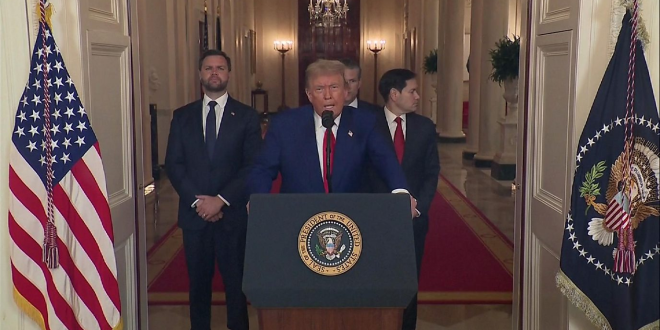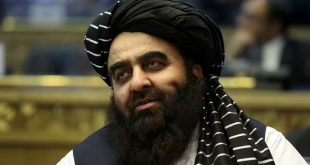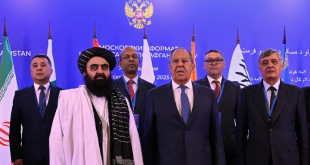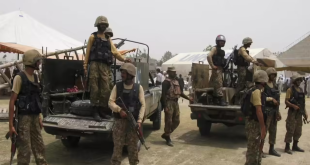KABUL – In a dramatic escalation of the Middle East conflict, the United States has launched coordinated airstrikes on three major Iranian nuclear facilities, bringing Washington directly into the Israel-Iran war. Former President Donald Trump confirmed the operation late Saturday night, declaring that U.S. B-2 bombers and submarines “totally obliterated” Iran’s key enrichment sites at Fordow, Natanz, and Isfahan, and warned Tehran to “make peace” or face “far greater” devastation.
Iran’s Foreign Minister Abbas Araghchi condemned the attack as “outrageous” and promised “everlasting consequences,” stating the strikes were a flagrant violation of international law. Tehran is reportedly weighing both military retaliation and diplomatic responses, including calls for an emergency session of the UN Security Council.
The International Atomic Energy Agency (IAEA) confirmed that despite the strikes, no radiation leaks or spikes have been detected so far. While the UK was not involved in the assault, British officials say they were informed in advance of the U.S. operation.
This is the most significant U.S. military action against Iran since 2020 and signals a full-blown internationalization of the Israel-Iran confrontation. Israel welcomed the U.S. involvement, calling it a “historic step.”
With tensions at their peak, the world is now watching Tehran’s next move — whether it chooses direct retaliation, asymmetrical warfare via regional proxies, or ramps up its nuclear efforts in defiance. The coming hours could determine whether the region plunges into full-scale war.
 Afghanistan Times Latest News and Analysis from Afghanistan and the Region
Afghanistan Times Latest News and Analysis from Afghanistan and the Region




